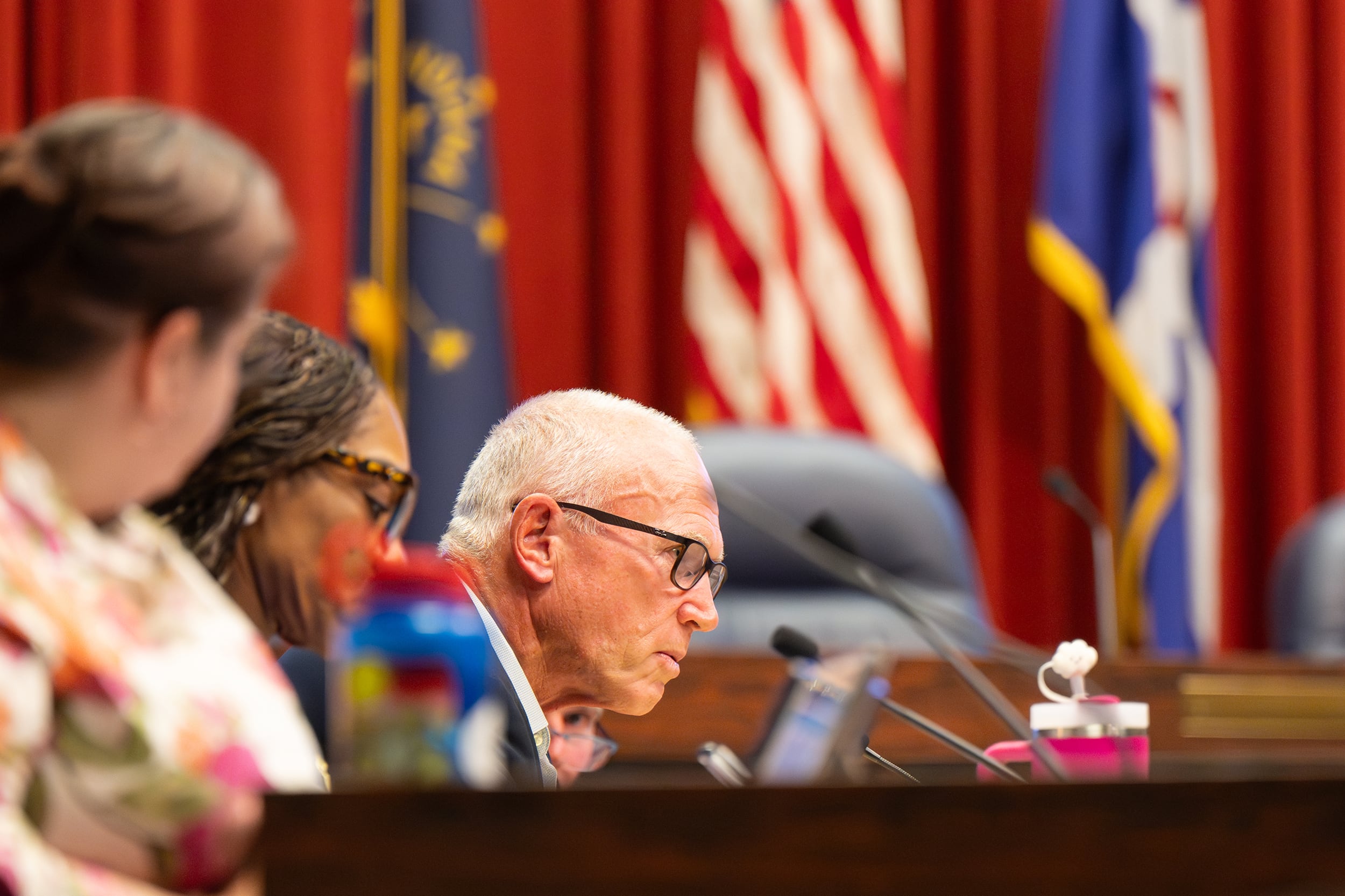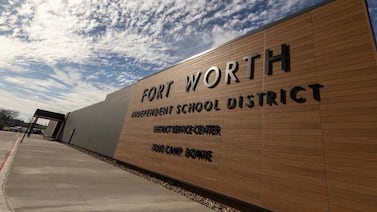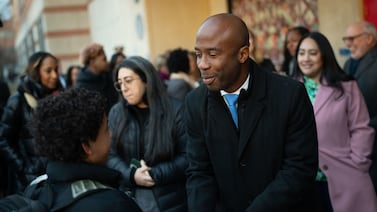Sign up for Chalkbeat Indiana’s free daily newsletter to keep up with Indianapolis Public Schools, Marion County’s township districts, and statewide education news.
Members of the Indianapolis Local Education Alliance are grappling with who should govern Indianapolis Public Schools and charter schools — and it remains uncertain how drastic an overhaul they will recommend as they work toward creating a more unified system.
The group heard a range of ideas for new ways of overseeing schools on Wednesday night, including the creation of a mayor-controlled oversight board for district and charter schools.
Members also heard potential solutions for how to overhaul the buildings and transportation infrastructure so IPS and charter schools receive equal resources.
The list of solutions presented by task forces within the group could guide its final recommendations, which would then be sent to state lawmakers as well as city and district leaders next month. Those could lead to sweeping changes for the landscape of Indianapolis Public Schools as well as charter schools in the area.
The potential solutions come as community leaders and groups continue pressing the ILEA for a flurry of changes. Some parents are pushing to safeguard traditional public schools, while others want charter schools to receive what they believe are proper resources. Roughly 100 people signed up for public comment on Wednesday.
The alliance is adding a meeting the first week of December to vote to narrow its support to one of several solutions presented for each transportation, building, and governance topic. The date is yet to be determined. The group will then host listening sessions throughout the city for further public input on the selected models, ILEA consultant Michael O’Connor said at Wednesday’s meeting.
The ILEA will then vote on its final recommendations at a Dec. 17 meeting at 6 p.m. at a location to be announced.
Advisory board or independent authority could lead transportation
The cost of transportation for district and charter students depends on the amount of school choice.
The first transportation option would feature the creation of a “collaborative compact advisory board.” The board would determine levels of service, transportation zones, walk zones, and other logistics for schools that participate in the compact. Participating schools would pay a fee for the service, which IPS would run.
The second option would create an independent transportation authority, which would directly receive property tax dollars for transportation. The authority would make logistical decisions around zoning and would provide the service.
Some ILEA members on the transportation task force believe that schools should be required to offer transportation, O’Connor said at the meeting. But others found that it would be hard to support mandatory participation without an independent transportation authority.
Members Tobin McClamroch and city-county councilor Maggie Lewis said they supported the second option of an independent authority over the first.
“The most important word is independent — it’s an independent building authority," McClamroch said, noting that the first option may be a continuation of the status quo in which IPS and charter schools each worry about their own entities.
But Superintendent Aleesia Johnson said many charters choose to participate in a service offered by IPS today, and said she does not believe an independent authority is the solution.
She added that all schools should be required to offer transportation, an opinion also offered by member Angela Smith-Jones.
“If you receive property tax dollars and you don’t want to participate, that could be your choice, and then you do not receive those funds,” Johnson said.
Building solutions depend heavily on who governs schools
The possible solutions around school buildings are overshadowed by larger questions around governance, including who should set any accountability standards that could determine which schools receive existing buildings and who should have the power to open or close charter schools.
One option would include the creation of another “collaborative compact advisory board” with statutorily binding policies that determine which schools to open and close. Accountability and performance standards would be set as policy by voting members of the compact. Schools would pay a fee for facility services.
Another option includes the creation of an independent building authority staffed by facility experts that would receive the property tax dollars meant for facility costs. The authority would make decisions on bids for public building projects.
A third option would designate IPS as the facilities provider. Property tax dollars for buildings would go to schools, which would then pay a fee for the use and maintenance of the buildings.
A fourth option — which O’Connor said was perhaps the least supported by task force members — would be for the Indianapolis-Marion County Building Authority to assume ownership and operations of existing school buildings. The authority would receive property tax revenue directly.
Governance options range from IPS as authorizer to appointed school board
O’Connor also presented four potential governance options.
In one, IPS would serve as the charter authorizer. Schools denied a charter could appeal to the mayor’s Office of Education Innovation, which is the current authorizer for a majority of charter schools in IPS boundaries.
Another model creates an advisory board of members appointed by IPS, the mayor, and charter schools. Both charter and district schools would report to this board, which would serve as a charter authorizer and would make policies to determine which schools to open and close.
A third model creates an Indianapolis Education Authority featuring a secretary of education under the mayor. Both district and charter schools would report to a board of five mayoral appointees and four elected IPS school board members, which would set policy on school accountability, transportation, and closures.
A fourth option would replace the elected IPS board with a board appointed by the mayor. The Office of Education Innovation would continue authorizing independent and innovation charter schools, with appeals sent to the Indiana Charter School Board.
Corrections and clarifications: This story has been updated to correct the charter authorizing and appeals authority in the fourth governance model.
Amelia Pak-Harvey covers Indianapolis and Lawrence Township schools for Chalkbeat Indiana. Contact Amelia at apak-harvey@chalkbeat.org.







